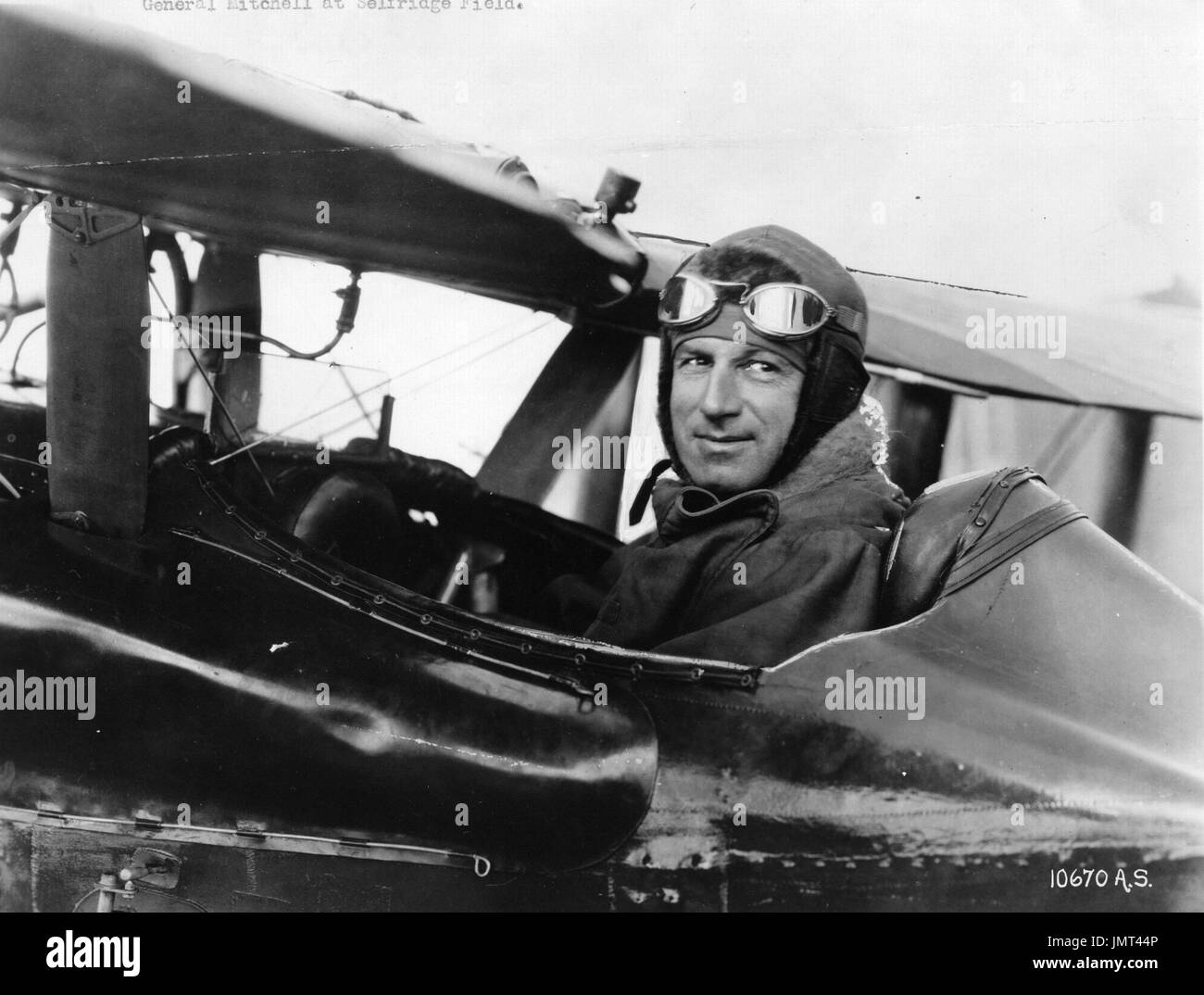General Billy Mitchell at Selfridge Field, Michigan. Billy Mitchell is one of the most famous and controversial figures in American airpower history. He was born December 28, 1879. Mitchell was the first prominent American to publicly speak about his vision of strategic airpower that would dominate future war. He believed that aircraft were inherently offensive and were strategic weapons that revolutionized war by allowing a direct attack on the "vital centers" of an enemy country. These vital centers were the mighty industrial areas that produced the vast amount of armaments and equipment

Image details
Contributor:
Newscom / Alamy Stock PhotoImage ID:
JMT44PFile size:
17.4 MB (549.5 KB Compressed download)Releases:
Model - no | Property - noDo I need a release?Dimensions:
2833 x 2146 px | 24 x 18.2 cm | 9.4 x 7.2 inches | 300dpiDate taken:
28 August 2002Photographer:
BJ WarnickMore information:
This image could have imperfections as it’s either historical or reportage.
General Billy Mitchell at Selfridge Field, Michigan. Billy Mitchell is one of the most famous and controversial figures in American airpower history. He was born December 28, 1879. Mitchell was the first prominent American to publicly speak about his vision of strategic airpower that would dominate future war. He believed that aircraft were inherently offensive and were strategic weapons that revolutionized war by allowing a direct attack on the "vital centers" of an enemy country. These vital centers were the mighty industrial areas that produced the vast amount of armaments and equipment so necessary in modern war. His relations with superiors deteriorated as he began to attack both the War and Navy Departments for being insufficiently farsighted regarding airpower. His fight with the Navy climaxed with the dramatic bombing tests of 1921 and 1923 that sank several battleships, which Mitchell said proved that surface fleets were obsolete. Within the Army he also experienced difficulties, notably with his superiors, and in early 1925 he reverted to his permanent rank of colonel and was transferred to Texas. When the Navy dirigible "Shenandoah" crashed in a storm and killed 14 of the crew, Mitchell issued his famous statement accusing senior leaders in the Army and Navy of incompetence and "almost treasonable administration of the national defense." He was court-martialed, found guilty of insubordination and suspended from active duty for five years without pay. He elected to resign instead as of February 1, 1926, and spent the next decade continuing to write and speak about airpower. Mitchell's plea for an independent air force was met to a degree in the creation of General Headquarters Air Force in March 1935. Mitchell died February 19, 1936.